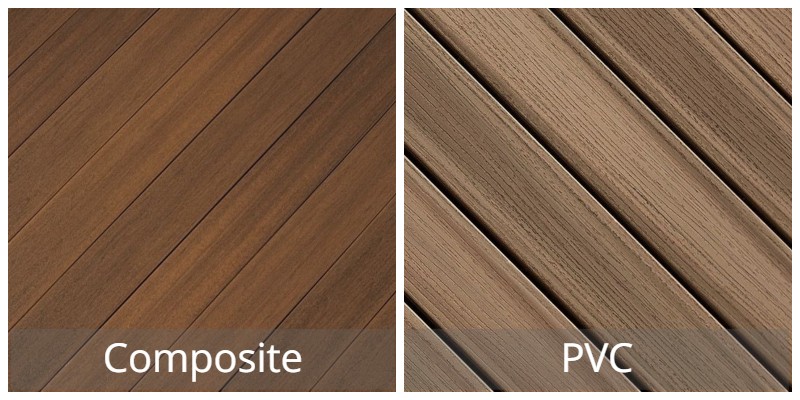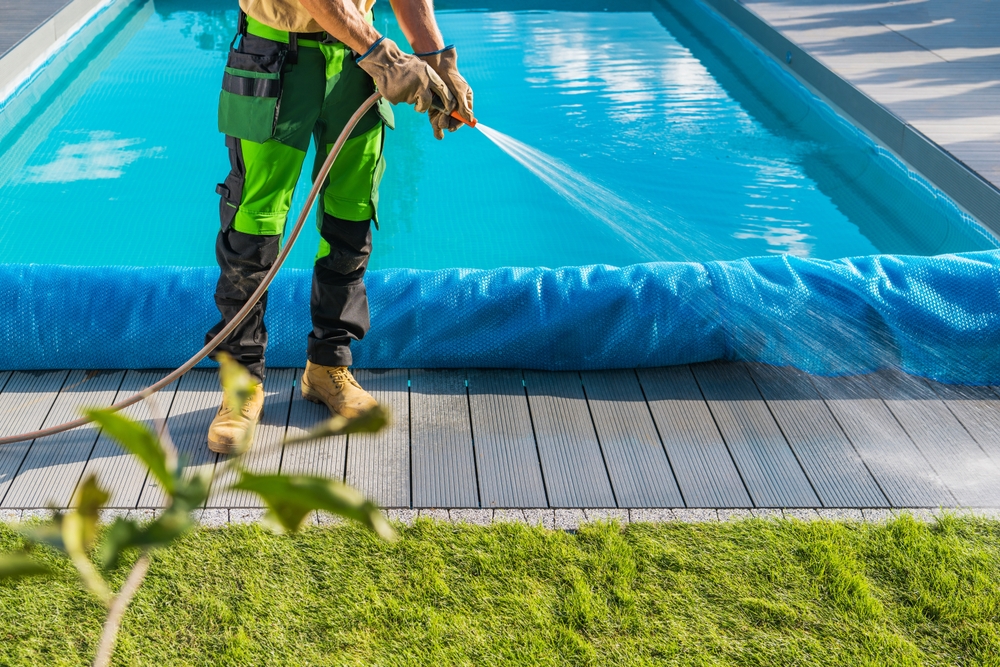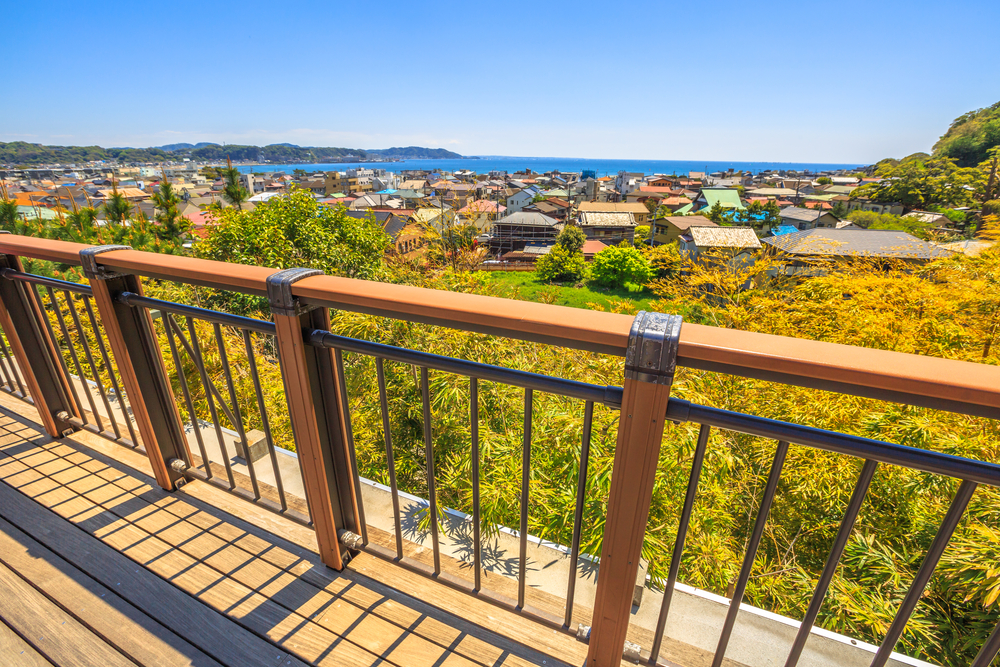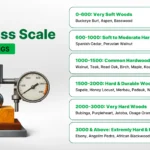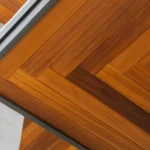Composite Decking
PVC VS Composite Decking: What’s the Difference?
Are you planning to embark on a wood project and considering decking options? The choice between PVC vs composite decking can be a pivotal decision in achieving the perfect outdoor space. Both materials have their unique advantages and drawbacks, so it’s essential to understand the differences to make an informed choice.
In this guide, we’ll provide an overview of PVC vs composite decking, discuss their pros and cons, and help you decide which one is better suited for your needs.
What’s the Difference Between PVC and Composite Decking?
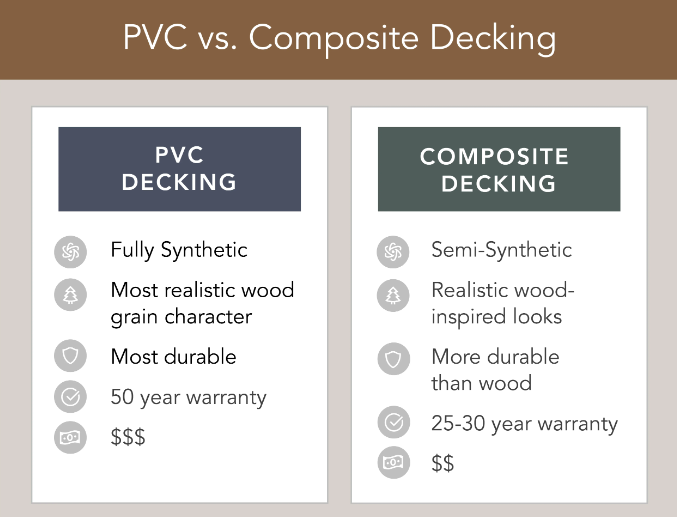
PVC Decking: A Closer Look
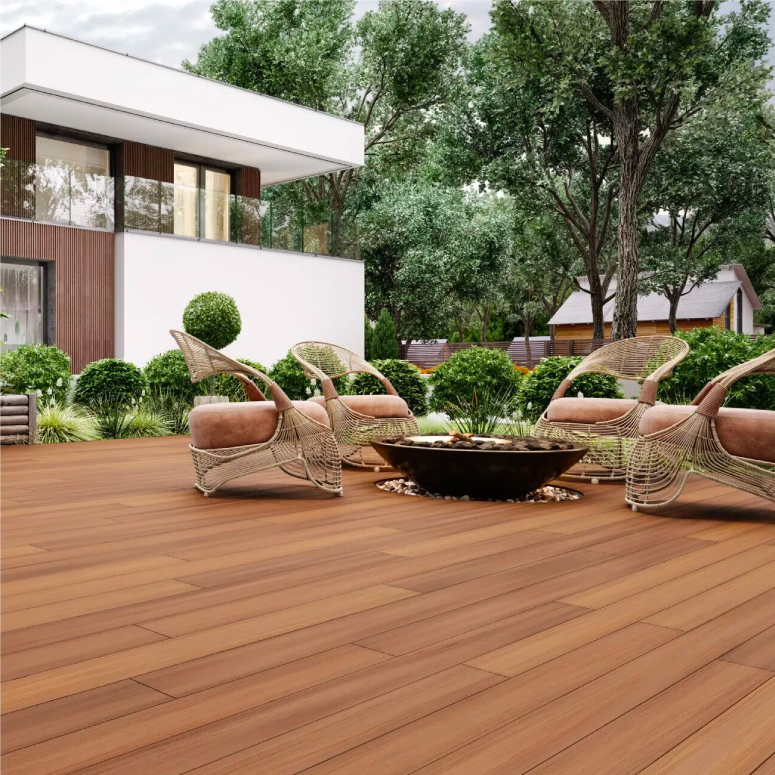
PVC decking, also known as polyvinyl chloride decking, is a type of synthetic decking material made from plastic polymers. It is engineered to mimic the look and feel of traditional wood decking while offering several advantages, including durability, low maintenance, and resistance to various environmental factors. Here’s a more detailed look at PVC decking:
Pros of PVC Decking:
- Durability: PVC decking is incredibly durable and can withstand harsh weather conditions, including rain, snow, and extreme temperatures. It won’t rot, warp, or splinter like natural wood.
- Low Maintenance: One of the most significant advantages of PVC decking is its low maintenance requirements. It doesn’t require staining, sealing, or regular painting. A simple wash with soap and water is typically enough to keep it looking fresh.
- Longevity: PVC decking often comes with extended warranties, sometimes up to 30 years, due to its durability and resistance to wear and tear.
- Color Retention: PVC decking maintains its color over time and is less likely to fade or change compared to composite decking.
- Insect and Mold Resistance: PVC is not a food source for insects, and it is resistant to mold and mildew growth, reducing the need for chemical treatments.
Cons of PVC Decking:
- Price: PVC decking tends to be more expensive upfront compared to other decking materials, including composite decking.
- Heat Retention: PVC decking can become hot to the touch on scorching summer days, making it less comfortable for bare feet.
- Limited Aesthetic Options: While PVC decking is available in various colors and textures, some homeowners prefer the natural look and feel of wood.
Composite Decking: An Overview
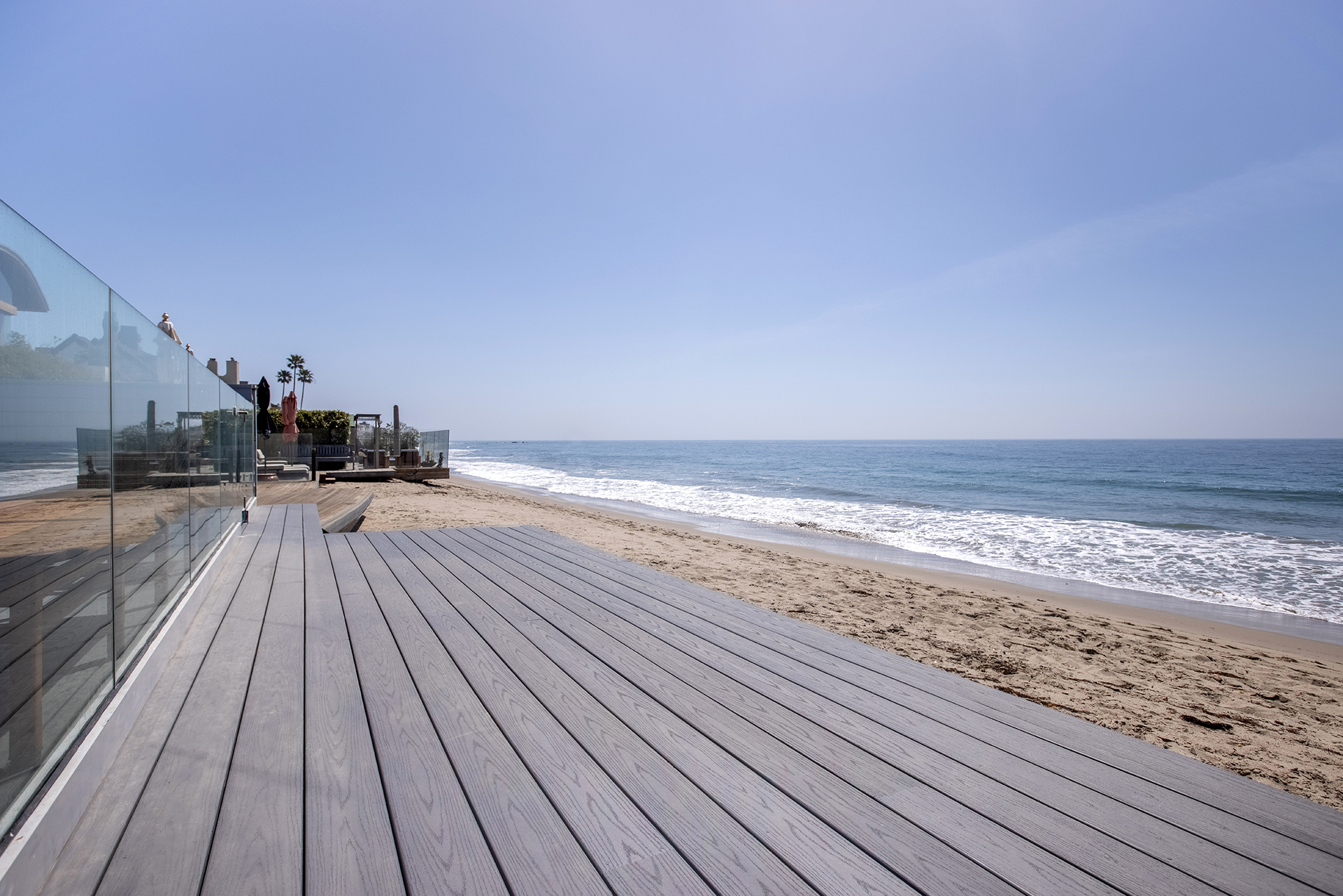
Composite decking is a blend of wood fibers and recycled plastic materials. It aims to combine the best of both worlds – the appearance of wood with the durability of plastic. Let’s dive into the specifics of composite decking:
Pros of Composite Decking:
- Natural Appearance: Composite decking is designed to mimic the look and feel of real wood, providing a warm and inviting aesthetic for your outdoor space.
- Durable: While not as durable as PVC, composite decking is still resilient and can withstand the elements. It’s less likely to crack, warp, or splinter compared to traditional wood.
- Low Maintenance: Like PVC decking, composite decking requires minimal maintenance. It doesn’t need staining or sealing, and a simple cleaning routine is usually sufficient.
- Environmental Benefits: Many composite decking brands use recycled materials in their production, making them a more eco-friendly choice compared to PVC.
- Variety: Composite decking comes in a wide range of colors, textures, and finishes, allowing you to customize your outdoor space to your liking.
Cons of Composite Decking:
- Price: While generally more affordable than PVC, composite decking can still be pricier than traditional wood options.
- Slight Fading: Over time, composite decking may experience some fading, although it’s less pronounced than with PVC.
- Slight Mold Growth: In certain conditions, composite decking may develop mold or mildew, although it’s less likely than wood.
PVC VS Composite Decking: Which is Better?

The question of whether PVC or composite decking is better depends on your specific needs and preferences. Here are some key considerations to help you make an informed decision:
Choose PVC Decking If:
Durability is Your Top Priority: If you want a decking material that can withstand extreme weather conditions and is highly resistant to wear and tear, PVC is an excellent choice.
Low Maintenance is Essential: PVC decking requires minimal upkeep, making it ideal for homeowners who prefer a hassle-free outdoor space.
You Want a Long Warranty: If you appreciate the peace of mind that comes with extended warranties, many PVC decking brands offer generous coverage.
You Prefer Consistent Color: PVC decking maintains its color over time, so if you want a deck that looks the same year after year, PVC is the way to go.
Choose Composite Decking If:
Natural Aesthetics Matter: If you desire the authentic look and texture of wood without the maintenance hassles, composite decking can provide the perfect balance.
Environmental Considerations: If you’re concerned about the environment and prefer decking materials made from recycled components, composite decking aligns with eco-friendly values.
Customization is Key: With a wide range of color options and textures, composite decking allows you to create a personalized outdoor space that suits your style.
Price Sensitivity: While not the cheapest option, composite decking often provides a more budget-friendly alternative to PVC.
Conclusion
In the debate of PVC vs composite decking, there’s no one-size-fits-all answer. Both materials offer unique benefits and drawbacks, making them suitable for different types of projects. Consider your specific needs, budget, and aesthetic preferences when making your choice.
At Brazilian Lumber, we specialize in providing high-quality decking solutions, including tropical hardwoods, composite decking, and PVC decking. Our team is here to assist you in selecting the perfect decking material to transform your outdoor space into a beautiful and functional oasis.
PVC vs composite decking – the choice is yours, and the possibilities are endless. Happy decking!


